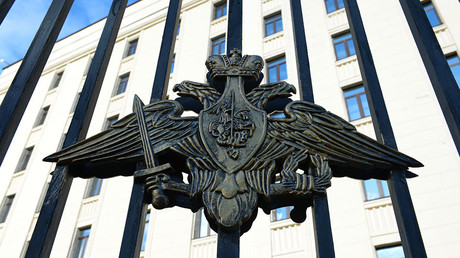Estonia and Lithuania have signed agreements with the US
regulating the status and deployment framework of American soldiers and
hardware on the territory of the two Baltics states.
In Estonia, the agreement was signed between the country’s Minister of Defense Margus Tsahkna and the US ambassador James Melville. In an official tweet, Tsakha’s ministry described the move as a “milestone.”
A milestone: DefMin @Tsahkna and @USEmbTallinn AMB Melville signed the agreement on defence cooperation between Estonia and the U.S. pic.twitter.com/Nv3W3c9ZA4— MoD Estonia (@MoD_Estonia) January 17, 2017
A similar agreement was signed between Lithuania’s Minister of Defense Raimundas Karoblis and the US ambassador to the country, Anne Hall. “Let me congratulate everyone with what I see as a milestone in the strategic Lithuanian-US security and defence partnership that we confirm with this agreement," Karoblis said.
The bilateral agreement is being dubbed “a first of its kind.” It focuses on regulating the presence of US military personnel and their family members, alongside the use of Lithuania’s military sites by American troops. The agreement will come into effect after a ratification by Lithuania’s parliament.
Strategic partners #Lithuania & the #US sign a SOFA agreement strengthening US deployments in the area & improving military cooperation. pic.twitter.com/lU0p8YGtnC— Lithuania in NATO (@LitdelNATO) January 17, 2017
An agreement mirroring those signed on Tuesday, was completed between Latvia and Washington last week.
In July 2016, NATO members agreed to the “biggest reinforcement since the Cold War,” posting four multinational battalions to Estonia, Latvia, Lithuania and Poland. In November, Washington announced the deployment of nearly 6,000 troops, along with tanks, infantry vehicles, heavy howitzers, and combat helicopters to Eastern Europe.
Earlier this month, hundreds of US military vehicles including tanks and armored vehicles, as well as loads of heavy military equipment were unloaded in Germany in order to strengthen European defense capabilities, according to official statements.
The enlargement comes as NATO members are citing the military manoeuvre as countering “Russian aggression” and calling it “a source of instability.”
Russia has repeatedly and consistently denied any allegations of its perceived threats, pointing to the serious build-up of NATO forces on its doorstep.Moscow has expanded training for its troops while increasing its strategic capabilities in areas such as Kaliningrad, its western exclave.
Despite the massive multinational troop expansion near it’s borders, Moscow, in August, tried to ease tensions, proposing enhanced cooperation with NATO on multiple levels. That included combatting terrorism and also “cooperation to avoid incidents at sea and in the air” at the border areas with NATO countries.
In December last year, the US Permanent Representative to NATO Douglas Lute, pointedly said he does not “believe that anyone in Russia today intends to attack NATO.”
Popular In the Community





Δεν υπάρχουν σχόλια :
Δημοσίευση σχολίου